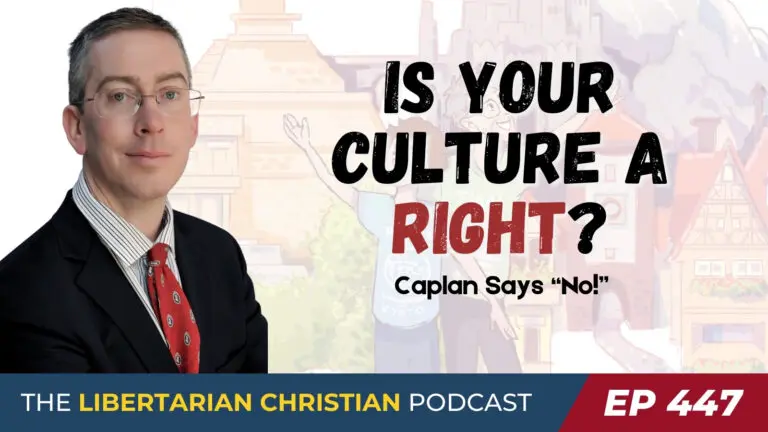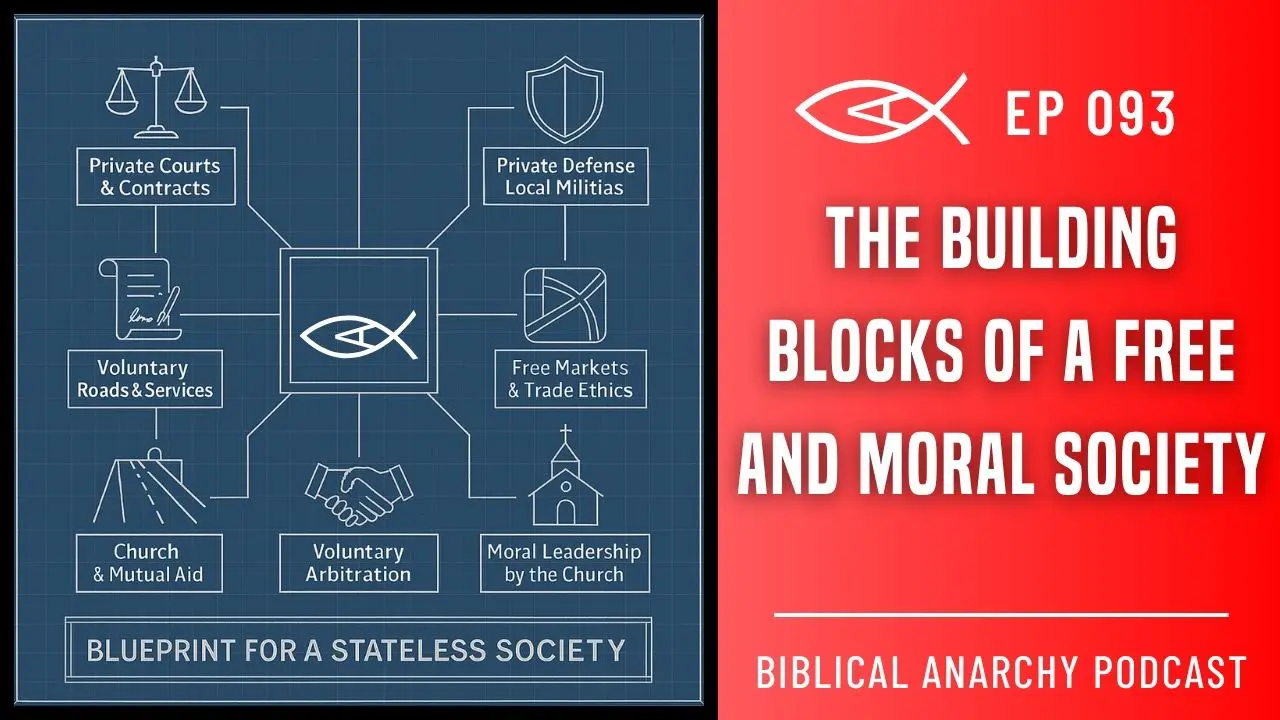

In this episode of the Biblical Anarchy Podcast, Jacob Winograd continues addressing common objections to Christian libertarianism and anarchism. Picking up from a previous installment, Jacob works through a rapid-fire list of objections related to economics, justice, civil governance, and societal concerns. Drawing from biblical principles, covenant theology, and libertarian ethics, Jacob refutes ideas that anarchism inevitably leads to lawlessness, exploitation, or neglect of the poor. He emphasizes that many of these criticisms unfairly compare an idealized state to a skeptical view of liberty, rather than assessing both systems with equal scrutiny.
Jacob tackles familiar refrains like “Who will build the roads?” and “Render unto Caesar,” challenging listeners to rethink their assumptions about the state’s role in justice, economics, and morality. He advocates for voluntary systems of law, dispute resolution, and mutual aid, all grounded in a Christian ethic of non-aggression, proportional justice, and care for the vulnerable. Jacob also outlines how Christians can engage culture and politics without compromising biblical convictions, making this a compelling follow-up to his earlier episodes on biblical anarchy.
| Time | Topic |
|---|---|
| 00:00 | Intro to the episode and context from last two solo episodes |
| 01:05 | Transitioning into Part 2 of answering 35 objections to biblical anarchy |
| 02:52 | Objection: “Without a state, how are property rights enforced?” |
| 05:21 | Argument: The state itself violates property rights through taxation |
| 06:59 | Solutions: Private law, DROs, and cultural reinforcement |
| 10:58 | Objection: “What stops people from stealing land/resources?” |
| 11:52 | Objection: “Who builds the roads?” rebutted with insurance incentives |
| 13:50 | Objection: “Wouldn’t a free market lead to monopolies?” |
| 16:05 | Objection: “What about the poor without welfare?”—Church and mutual aid |
| 17:56 | Objection: “Did Jesus legitimize taxes?” and the meaning of “Render unto Caesar” |
| 19:08 | Objection: “Wouldn’t this lead to unregulated capitalism and corruption?” |
| 20:06 | Objection: “What about wages, labor laws, and worker protections?” |
| 23:36 | Objection: “Who enforces justice without the government?” |
| 24:25 | Discussion of private law, contracts, and private prisons |
| 27:23 | Objection: “Wouldn’t anarchy lead to mob justice or vigilantism?” |
| 28:39 | Objection: “How would biblical civil punishments be carried out?” |
| 30:15 | Objection: “Would private arbitration favor the rich?” |
| 31:34 | Objection: “Who holds people accountable for contract violations/fraud?” |
| 33:04 | Objection: “Does the OT law mandate a theonomic legal system?” |
| 34:17 | Objection: “What stops people from legalizing drugs/abortion?” |
| 35:33 | Rebuttal: State bans on vice don’t prevent them and often worsen outcomes |
| 36:34 | Objection: “Would biblical anarchy lead to moral relativism?” |
| 37:37 | Objection: “Should Christians withdraw from politics?” |
| 38:27 | Defining “big P” vs “little p” politics and proper Christian engagement |
| 39:18 | Objection: “Would this lead to breakdown of family/community?” |
| 40:25 | Objection: “Doesn’t the church need the state’s protection?” |
| 41:22 | Final segment: Brief response to Christian nationalism objections |
| 42:48 | Closing call to support, subscribe, and live for Christ |



















































Sign up and receive updates any day we publish a new article or podcast episode!